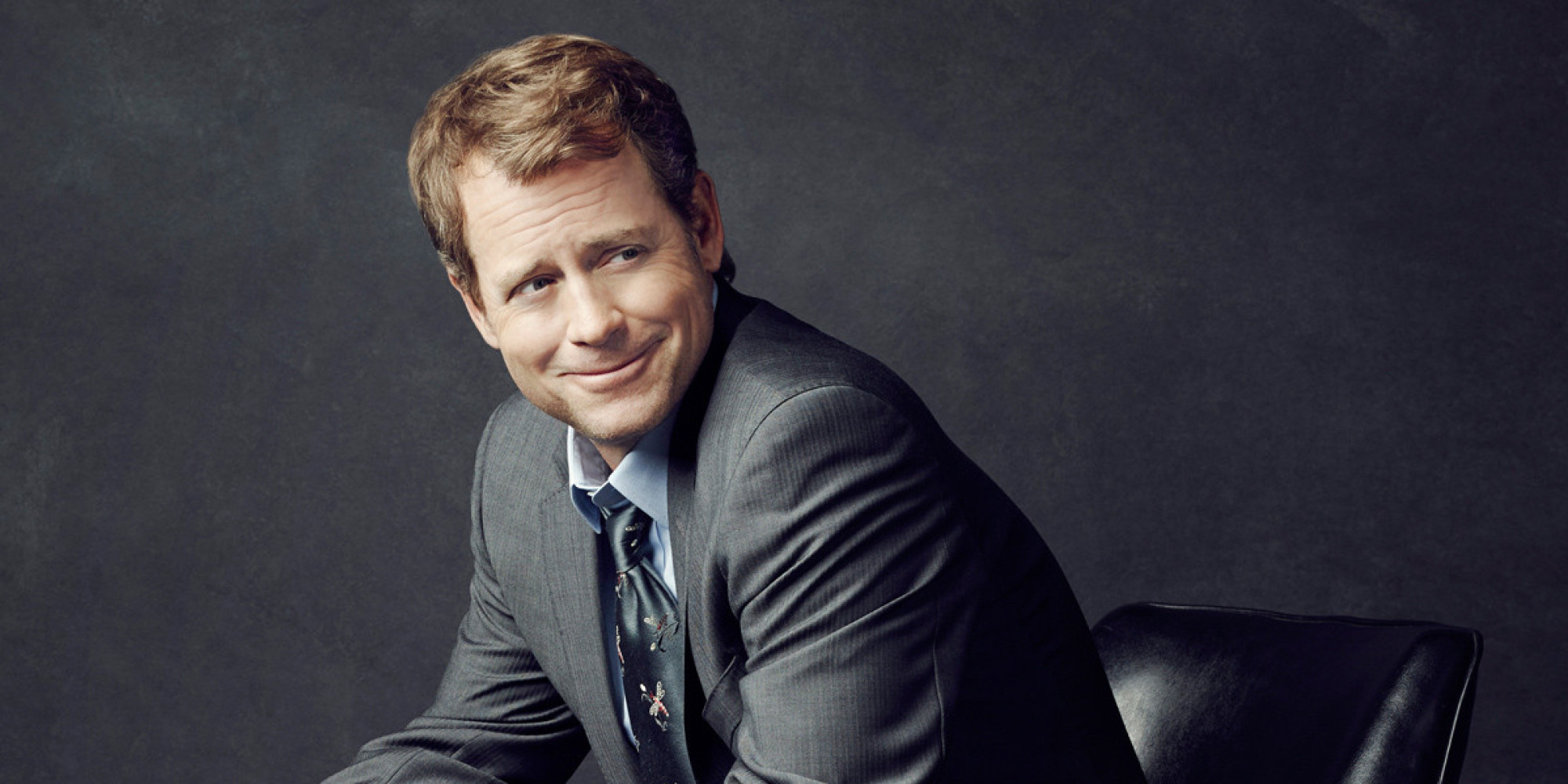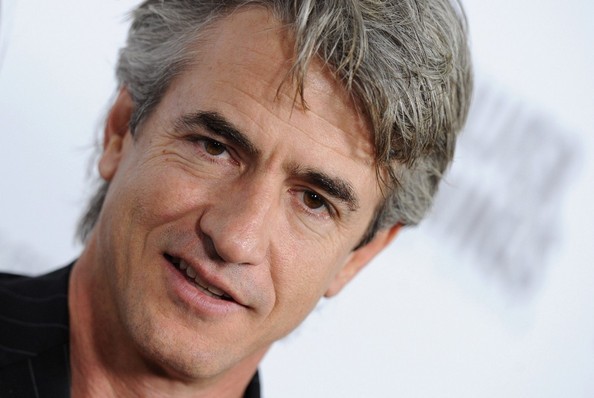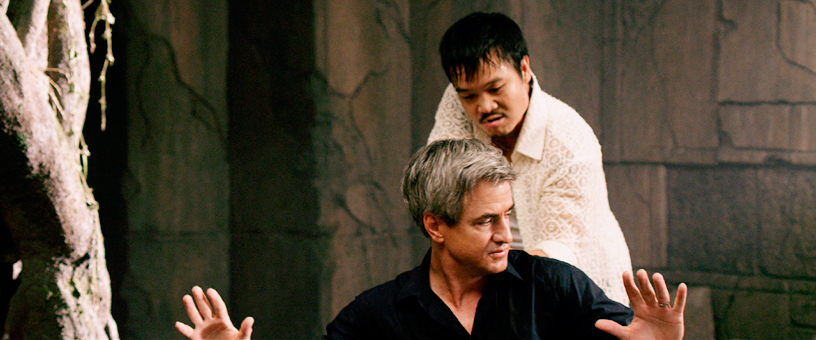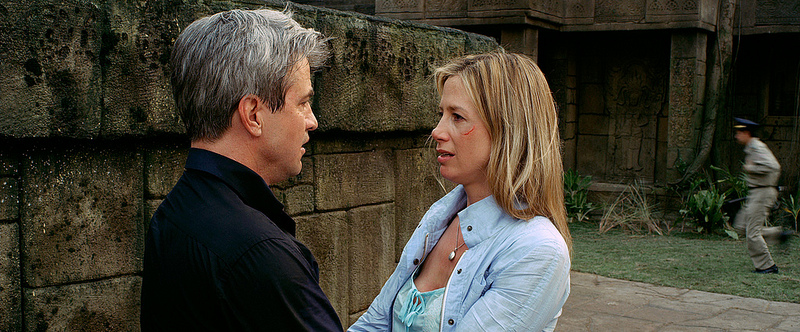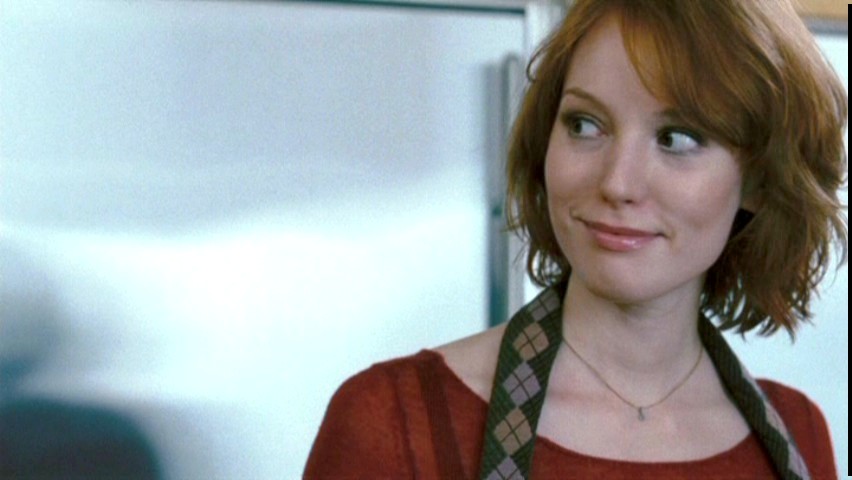“I’m not gonna lie to you, it didn’t grab me,” Greg Kinnear says about his first hear-tell of the concept for the Universal film Flash of Genius (originally called Windshield Wiper Man).
However, after doing his due diligence, Kinnear found the David-versus-Goliath story to be both bigger than life and warmly, genuinely human (much like the actor himself, who, in a little more than a decade, has quietly managed to become a joyous and regular part of America’s moviegoing experience).
Kinnear plays one Bob Kearns, a real-life professor who, in the push-button sixties, invented and patented the intermittent windshield wiper (you heard me).
At first, Kearns is wooed by the intrigued Ford Motor Company, and, in his innocent enthusiasm, is over the moon even before the astronauts. Thinking he hit the happy highway, Kearns prepares himself and his brood for life as large as a Ford Galaxie 500.
Unfortunately, those happy endings only happen in the movies.
Instead, Kearns’ dreams are stalled when Ford decides to go it alone with the wiper, leaving him and his empty pockets out in the pouring rain, patent or no patent.
Although he is constantly being talked into a comfortable financial settlement (by Alan Alda as a crusading attorney and Dermot Mulroney as Kearns’ backer/pal with a groovy sixties hairdo), Kearns desires more than mere money: he wants Ford to admit they stole his idea.
So he makes himself a pain in the ass, a ping in Ford’s powerful engine. Acting as his own counsel, an obsessed Kearns fights the corporate giant – and the legal system – over the course of decades.
His family, who could have lived happily ever after from some sweet settlement money, instead suffers from devastating financial and emotional wreckage, as well as big-time bullying from one of the most powerful companies on Earth.
Sound a little off the beaten path for a principled-man-versus-corporate-greed flick? If so, you may first want to conduct an exit interview with the preview audiences, who were cheering at Kearns’ small (and then larger) victories, and also laughing aloud at the inventor’s inventive methods of defending himself in court.
The crowd cheered up a storm – a storm that could require windshield wipers.
“Anyone who understands patent law will understand the magnitude of what we were up against,” Kinnear says. “There is no drier, more uninteresting kind of law, but at the end of the day, this is really a very small story about a guy and his family and the damage that was done to him.”
Like Silkwood and other films before it, the devil can have his damn details. Here, the real story is in the story. You won’t need to take the LSATs or study engineering templates before you buy a ticket. It’s more heart than brain.
“I was thinking about why I liked it so much,” Kinnear says of Kearns’ tale, “and I kind of felt that many of these ‘Little Guy Takes On the Corporation’ films have big, sweeping, cinematic themes. They tend to deal with these big issues about mercury in the water or nuclear power. Big, big themes. And yet [Flash of Genius] was about a guy who invented a wiper mechanism. Not that that’s not a great invention, but because it’s seems so small potatoes, you have to set that aside. The story can’t really be about wipers. You realize that it’s a battle over principle. He gets [Ford] to acknowledge that what they did was wrong, and it felt like that was worth a lot.”
Needless to say, Ford was not exactly willing to ride shotgun on this trip down Memory Lane.
“Any Ford automobiles in this film were not provided by the Ford Motor Company, I assure you,” Kinnear says. “Listen, I think that Ford is treated fairly in this movie. These guys aren’t walking around in black hats and twirling their mustaches. People are marginalized by corporations all the time. That’s not an unusual story. And when that happens, there is a process. The process for justice, as [Alan Alda’s lawyer character] explains to Kearns, is that you don’t get a tickertape parade and keys to the city. You get a check. That’s how justice is dispensed. The issue in the movie is that they just underestimated this man. They picked the wrong guy. They picked the guy who was not looking for a compromise or a settlement or easy money. He was looking for them to acknowledge what they had done was wrong. Corporations – while they are made up of people to some degree – are really made up of policies. Number one on corporate policies’ lists is ‘we didn’t do anything wrong.’ So that butts up against the one tough son of a bitch they came across, and that spelled misfortune for them.”
Like Kearns, Kinnear’s life and acting career was blazed on a completely different trail. His story you have not heard before. He started out simply enough, being born in Indiana, but his father worked as a career diplomat for the U.S. State Department. This caused his Midwestern family to globetrot.
A self-proclaimed newshound, Kinnear was drawn to the excitement of what was happening in the big world as opposed to what was happening on the big screen. Ironically, one of America’s most popular actors had not grown up with the movies in mind.
“I didn’t go to the movies a lot,” he says of his expat youth. “I saw Jaws on my ninth birthday. A pivotal movie experience for me, which I told to Steven Spielberg, by the way. I didn’t see a lot of movies when I was a kid. We were living in Lebanon and Greece. There was a local theatre that played American movies where we lived, that I used to clean. It was a little janitor job that I had there one summer. So I saw some movies there. They were all part of the Armed Forces magazine route. They weren’t the blockbusters. By the time they got to Greece, they were kind of old news. I remember seeing The Exorcist which I probably shouldn’t have, being that I was too young and I snuck into the theater. That was traumatizing. Even now, I don’t see a lot of movies, and I’m regretful that my movie literacy is somewhat stunted. But I’m trying to catch up on it.”
Meanwhile, one could have trouble catching up with Kinnear’s own growing list of film appearances.
In the early nineties, he had quickly hopped from a legendary stint as the pre-snarky host of cable TV’s Talk Soup to the plum role of Harrison Ford’s little brother in Sabrina. He received an Oscar nomination for his work in As Good As It Gets, and drew raves for You’ve Got Mail, The Matador, Little Miss Sunshine, Nurse Betty and the Bob Crane biopic, Auto Focus. And let’s not forget that he sang and danced with Meryl Streep, not in Mamma Mia, but in Stuck On You.
His career seems to be anything but, uh, intermittent. Today he appears in the Ricky Gervais comedy Ghost Town at the very same multiplex as Flash of Genius.
However, he is humble about his track record.
“Of course, it’s misleading,” he says of the common misconception that he never stops getting jobs in Hollywood. “Probably the cable and the satellite of it all, combined with movies that do come out [makes it look like] there is this non-stop thing happening. I can just tell you without any question that I have big, huge holes. I have a five-year-old and a two-year-old daughter and I’ve gotten to spend an extensive amount of time with them. This year was kind of a crazy year. I did Baby Mama and Ghost Town and [Flash of Genius] and then this Paul Greengrass movie [Green Zone, coming in 2009] and that was a strange cluster of films. Prior to that, I hadn’t worked in like a year. It comes and goes. It ebbs and flows a little bit. A lot of the stuff that I do is supporting. If you look at my career, a lot of it is smaller, supporting stuff. When I did The Gift, I wasn’t spending the same amount of time that Cate Blanchett was. So that’s partly an illusion. But yes, I’ve had some consistency and for that I’m grateful. It’s not like I’m looking for huge windows to not work. I feel like I’m lucky for what has come.”
For many aspiring actors who yearn to be on the big screen, Kinnear’s star-crossed career may seem like the stuff of fairy tales, but he insists it’s more about being grounded.
“I keep waiting to have that epiphany where I wake up one morning and I say that I finally have a handle on this,” he says of his profession. “That I got this whole thing in the bag. That I have it figured out. That just hasn’t happened. I suspect it never does. If it appears to be a fairy tale, then that’s a fairy tale, because I’ve had to work pretty hard and it hasn’t come easy. The truth is that I’ve had plenty of ups and downs. But now I have a better understanding of the technique of acting, the craft of it. It’s always an ongoing process. I didn’t use to feel like an actor. I do now. And I’m very proud to be an actor.”
Meanwhile, he continues to light up the contemporary movie screen, one memorable role at a time, as steady and dependable as Bob Kearn’s windshield wipers.
This article originally appeared in Popentertainment.com.
